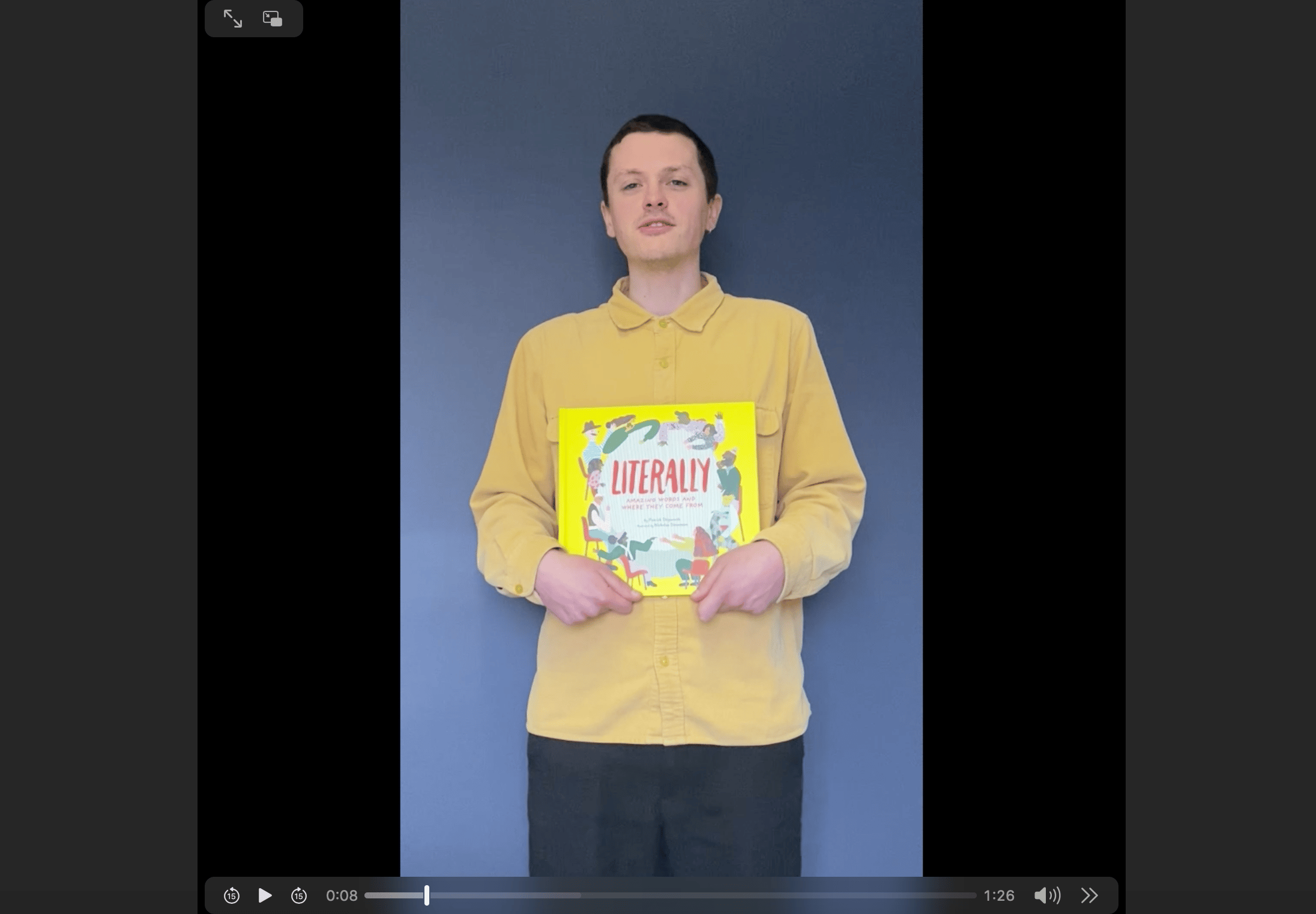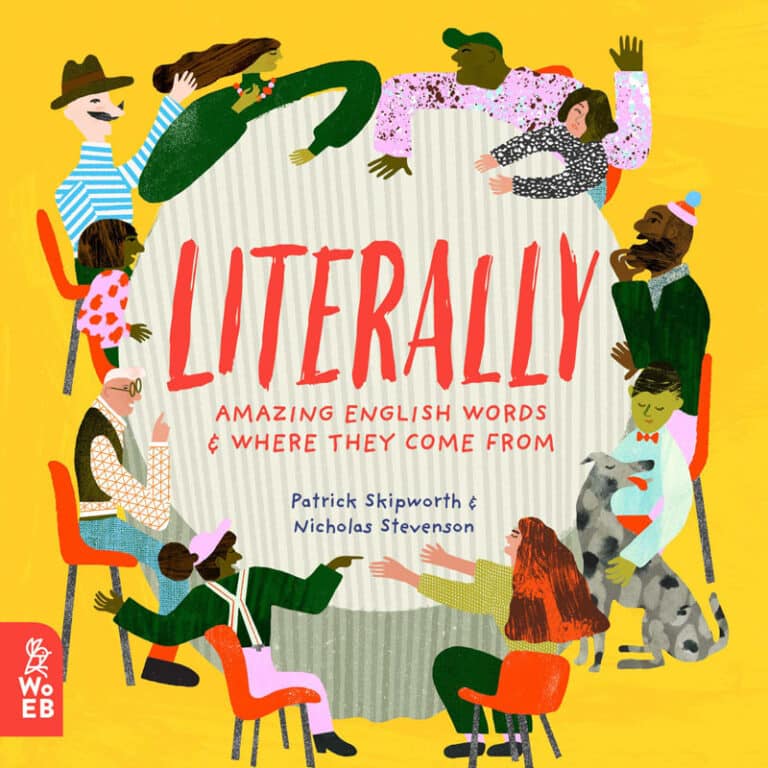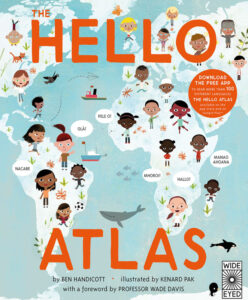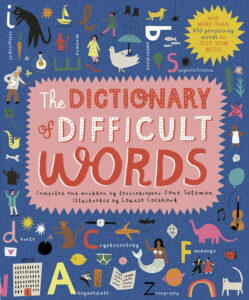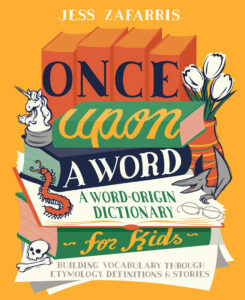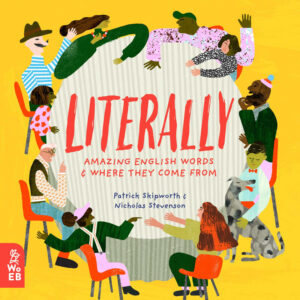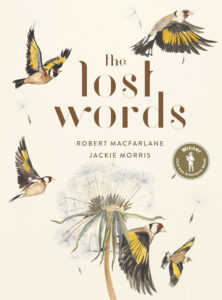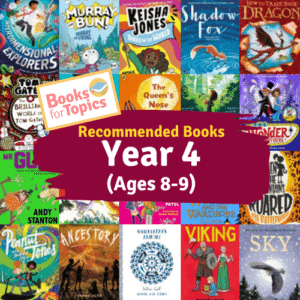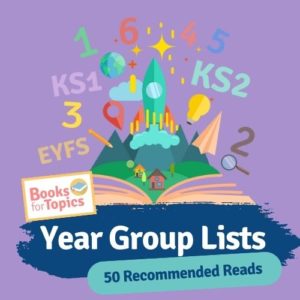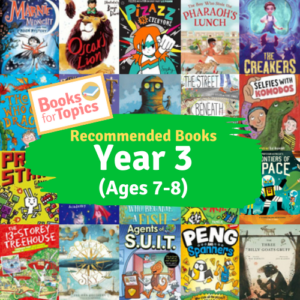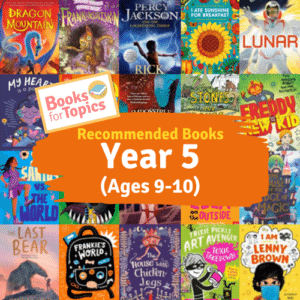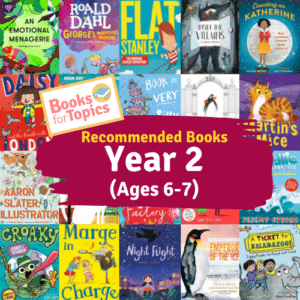Did you know that English words come from all over the world and that their meanings have changed along their journey? Our word ‘zero’ comes from the Arabic word for empty space. ‘Companion’ is from the Latin for with bread.
With simple descriptions and dazzling, evocative and witty illustrations, this is a fascinating introduction to the rich history and cultural diversity of our language.
Words included: karaoke (Japanese); zero (Arabic); guru (Sanskrit); ukulele (Hawaiian); jaguar (Tupi); royalty (Norman French); companion (Latin); kookaburra (Wradjuri); worm (Old English); mummy (Persian); caribou (Algonquin); safari (Swahili).







